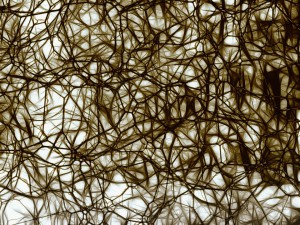 Schizophrenia is a very complex and dangerous disorder that is made up of either a lack of symptoms, an appearance of symptoms, or a combination of both. While many consider the only manifestation of schizophrenia to be talking to oneself, the disorder delves much deeper than that. It makes it difficult for the person affected to be able to distinguish between what is real and what is fantasy, and it can take away the ability to express emotion. Schizophrenia is, overall, a very debilitating disorder and therefore important to monitor with a team of professionals.
Schizophrenia is a very complex and dangerous disorder that is made up of either a lack of symptoms, an appearance of symptoms, or a combination of both. While many consider the only manifestation of schizophrenia to be talking to oneself, the disorder delves much deeper than that. It makes it difficult for the person affected to be able to distinguish between what is real and what is fantasy, and it can take away the ability to express emotion. Schizophrenia is, overall, a very debilitating disorder and therefore important to monitor with a team of professionals.
The symptoms of schizophrenia differ from person to person, but there are a few general things to look out for. Symptoms can be labeled as either ‘positive,’ ‘negative,’ or ‘cognitive.’ However, positive symptoms are not symptoms that have a good impact on the life of the patient. Rather, positive symptoms are those that appear as additions to normal behavior. For example, someone with such symptoms could begin to hallucinate, hearing or seeing things that others around them do not. Additionally, the person could start to act paranoid, having delusions that someone or something is after him or her when it is clear nothing is. Also, someone with schizophrenia could have altered movement patterns and halted speech.
Negative symptoms are the direct opposite of positive ones in that they are an absence of pieces of a personality. These can manifest as a loss of emotion, also known as a ‘flat affect,’ in which an individual seems to lose all ability to express anything at all. A person with negative symptoms can also withdraw from society and stop accomplishing basic tasks for living, such as showering. He or she will also leave projects unfinished. This complete loss of interest in living as they once did may make some with schizophrenia seem like they have depression. It is important to have these people evaluated by a medical professional so an accurate diagnosis can be administered.
The cognitive symptoms of schizophrenia involve a person’s ability to learn. Someone suffering from these types of symptoms generally has difficulty keeping facts straight or being able to process new information.
Schizophrenia can be treated in a number of ways, generally comprised of antipsychotic medication coupled with therapy sessions. Unfortunately, no cure for this disorder exists. However, it has been proven that it is possible, with the proper treatment, to lead a wonderful and fulfilling life.
